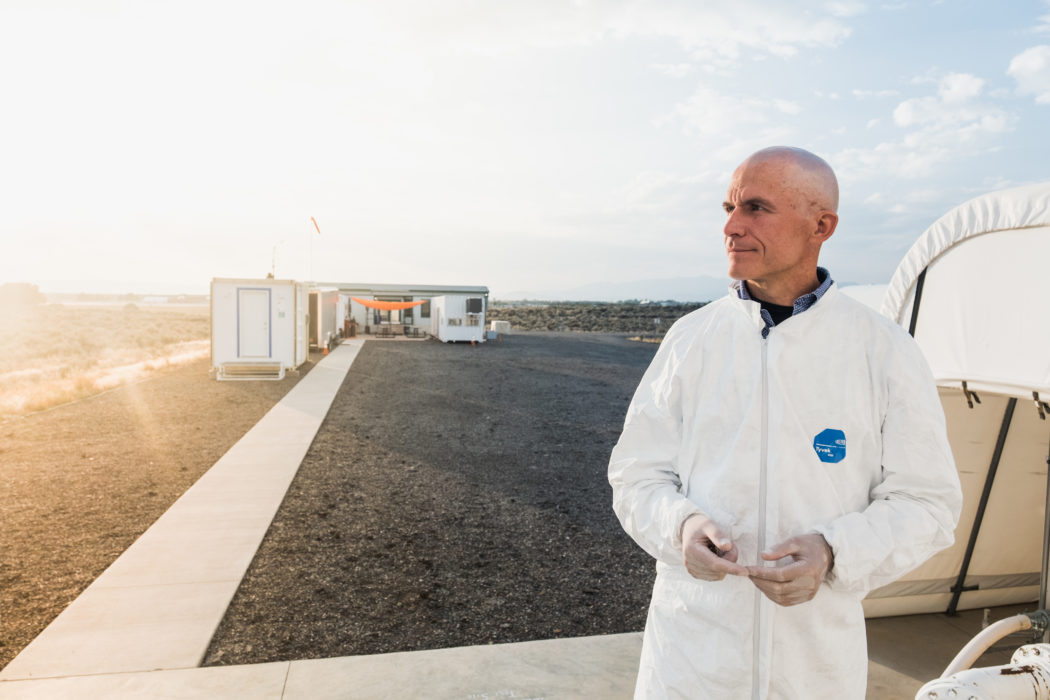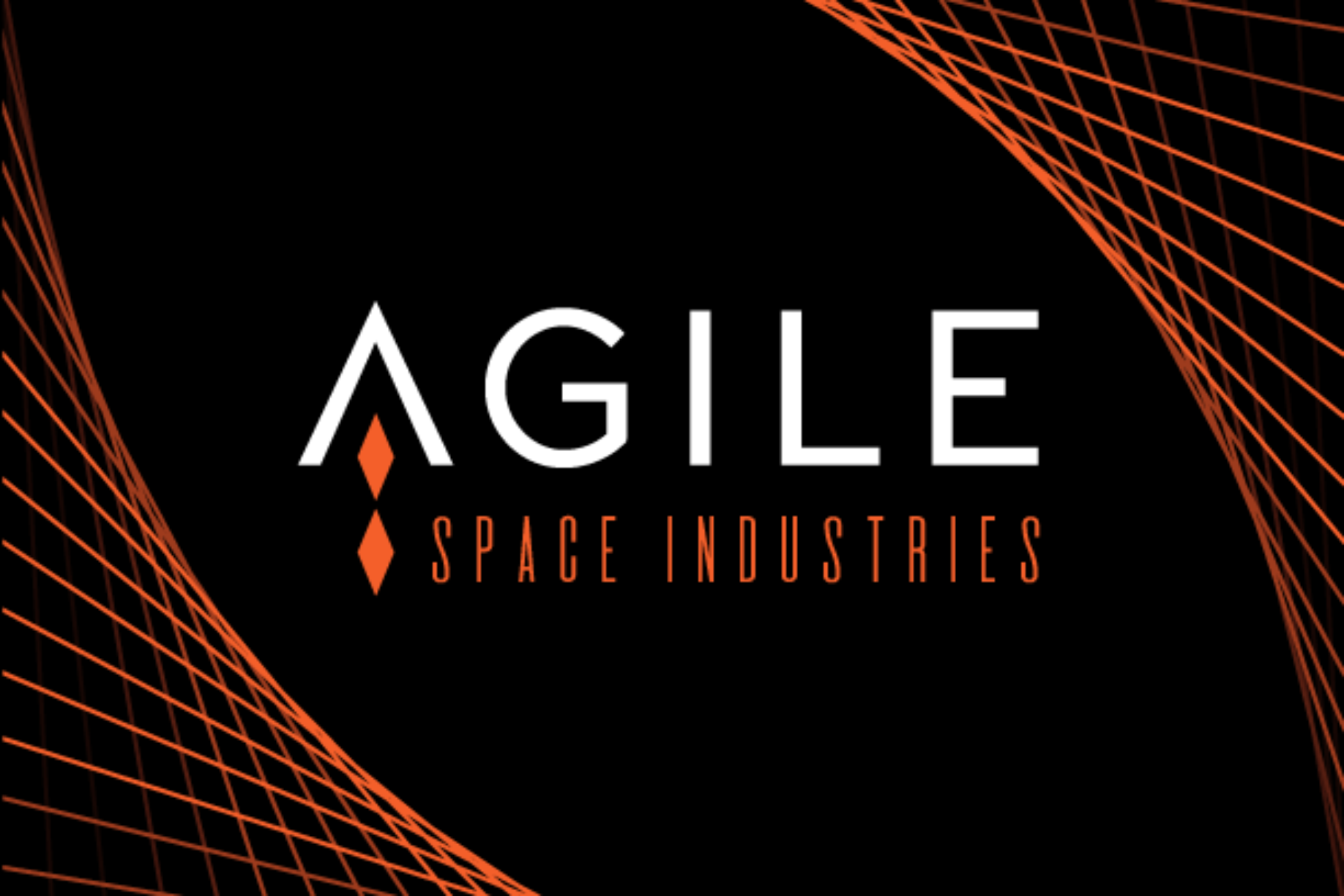At CORI, we are interested in broadening the conversation about rural America and sharing stories from local change agents and entrepreneurs who are driving innovation in the small towns and communities they call home. Our Rural Edge series features conversations with the people who are changing the narrative about what’s possible in rural America.
This week we spoke with Jeffrey Max, CEO of Agile Space Industries — a designer, manufacturer, and tester of integrated aerospace propulsion systems — based in Durango, Colorado. The CORI Innovation Fund recently made an Opportunity Zone investment in Agile, and we believe the company is transforming the space propulsion industry and bringing economic growth to Durango.
In our conversation, Max shares what led him to Durango, and how he’s found a supportive network of investors and partners that are committed to the region and have helped Agile grow into a thriving rural startup.
CORI: What led you to land in Durango, Colorado?
Max: In 1997, a venture capitalist approached me and said they had funded a business in Durango, Colorado that had patented the next generation of electronic trading platforms for the securities market.
I met the founder of the company in New York, and he told me that the business is based in NY and they had a couple hundred employees there, but he had a ranch in Durango and invited me out to see what it was like. He said that if I joined the company, I could live wherever, but the business was based in New York.
Had you ever heard of Durango at that point?
No. No. No. I hadn’t heard about Durango. But I flew out with this founder, got off the plane, looked around, and said wow, it’s pretty nice here.
Fast forward, my wife, two young kids and I relocated from London to Durango. We went from the center of the universe to the middle of nowhere — the best life decision we ever made. I stayed with that business until 2001, effectively commuting between Durango and NYC.
At that time in the late 90s, there wasn’t any kind of useful Internet service, spotty air service, no high-grade commercial activity, and it was really a tourist, ranching, and retirement town.
In the past year, we’ve brought in graduates from MIT, Purdue, West Point — young innovative leaders. Many of them had job offers from Blue Origin or SpaceX. And they chose to come to Durango.
Jeffrey Max, CEO of Agile Space Industries
Fast-forward to 2018. At a fundraiser my wife was hosting at our ranch, I was introduced to a guy named Daudi Barnes, who had relocated to Durango in the early 2000s from LA, and who had founded a company in Durango that tested propulsion systems for defense and aerospace companies like Boeing and Lockheed Martin, as well as NASA and the Air Force.
They had this sophisticated test facility where they were able to replicate the temperatures and vacuum of space, making it possible to test aerospace propulsion systems on the ground in Durango, under the same conditions they would find 1,200 miles up into space. They had gotten a grant from NASA to experiment with 3D printing, which allowed them to design and test satellite thrusters and propulsion systems at a fraction of the time, cost and weight of traditional manufacturing methods. I thought it was super innovative and interesting.
Daudi came to me and he said he was a great aerospace engineer, but was looking for help scaling and growing the business. He asked if I’d be interested, and I agreed to go and spend a day with him at his facility. The next day, I showed up at the test site at about 8 a.m., and I left at 9 p.m.
I spent a couple more days with Daudi, and came away believing that the business was a diamond in the rough. This was a company with all of the credibility, all of the bona fides, all of the innovation that you would expect to find in Silicon Valley, Boulder, Colorado, or Route 128 in Boston.
What are some of the benefits of running a company in Durango, compared to a place like NYC?
I think Durango is a great place to build a business like this. What’s unique and interesting about doing this in Durango — doing something so exciting and innovative, is that we are able to attract people who are of a caliber that one would expect to find in any startup capital in the world.
In the past year, we’ve brought in graduates from MIT, Purdue, West Point — young innovative leaders. Many of them had job offers from Blue Origin or SpaceX. And they chose to come to Durango.
The reason they came is twofold. It’s a combination of the innovative exciting work that we’re doing. But it’s also a lifestyle choice.
Many of these employees are younger, they have young families, and they’re saying wait a minute, I can work on the same thing in LA and spend three hours a day commuting. Or, I can take a comparable job in Durango, with comparable compensation, and have the most extraordinary lifestyle, where I’ve got mountains, skiing, mountain biking, and heaven knows what else.
It speaks to the fact that even in Durango, we’re able to secure the kind of talent we need for a highly technical defense industry kind of business. Also, when you compare what it would cost to replicate our facilities in a more urban and more trafficked area, we operate at a fraction of the cost of other areas.
What we’ve also found is that the local banking and investment community is very tight, and very focused on trying to support these kinds of innovative developments in this community.
So we’ve got a local community bank that bends over backwards to help and accommodate our needs and our growth, and they’ve been terrific. I think we’ve been fortunate that we’ve got something interesting and we’re able to do it in a community like this.
I’ve heard about the Durango Shuffle, where when people move to Durango, they want to stay and they’ll do anything to land a gig. Have you been able to tap into local talent?
Absolutely. There’s a local college in Durango, Fort Lewis College, with an undergraduate engineering program, and over the years, Fort Lewis has provided the highest percentage of our employee base out of any college or university. We’ve then trained them in operating our propulsion test facility.
When I joined Agile there were five people. There’s now 17. There will be close to 25 by the end of the year.
Jeffrey Max, CEO of Agile Space Industries
I love the idea of layering local talent with people relocating into the area. I also want to learn about the investor community. Have you found committed local investors?
What I have found most interesting is that we’ve tapped into a seam of venture capital and high net worth investors who are really focused on supporting initiatives and startups and early stage businesses in this community.
The lead investor who has been supportive of us and has led our financing round is the Greater Colorado Venture Fund, which invests primarily state funds in startups in Colorado. They’re connected to a network of other investors, lawyers, and accountants, and just a whole community of support services.
What does local investment mean for Durango and its entrepreneurial ecosystem?
I think it takes place because these tend to be successful entrepreneurs or executives who see that their community has been overly reliant on tourism, which right now is an Achilles’ heel for Durango. Several years ago, we had bad wildfires in the summer and it destroyed the summer tourist economy.
We’ve now got COVID which shut down tourism. So I think what these investors are looking for is, brick by brick, to build a foundation and an economy which is not reliant solely on tourism or oil and gas.
I think it’s the desire of these investors to see businesses coming into the community that can not only attract and draw and bring diversity to the human community, but can add back in terms of local jobs and use of local real estate and helping in the development of those opportunities. There’s just a whole ecosystem of taking a business and growing it.
When I joined Agile there were five people. There’s now 17. There will be close to 25 by the end of the year.
What’s on the horizon for Agile and Durango?
We’re clearly entering a new “space age.” Agile has the only independent propulsion test facility in the country, and we’re at the leading edge of using 3D printing to make aerospace propulsion systems faster, cheaper, lighter, and better. Without question, this is a company that five years from now will employ 150 people.
I think that what COVID has done in general is it has shown the business community that the legacy ways of doing business, having to have an office HQ, having to have people 9-5 in an office complex or high rise, is necessary in some industries, but less necessary in others. You can work from anywhere as long as there’s connectivity.
So you’re going to find urban refugees looking to make lifestyle choices, looking for places where they can fly in/out easily and can get reasonable capacity broadband. That means they will be relocating to communities like Durango over the next 5-10 years. I see the community growing with interesting and diverse people coming from all over the country to relocate.
And hopefully they are coming to start businesses like Agile, or work for businesses like Agile, and 10-15 years from now, we’ll have a thriving rural innovative business community that isn’t reliant solely on tourism as its foundation.
Stay connected
At CORI, we’re proud to work with companies like Agile as they drive innovation and generate local wealth in rural communities. Our CORI Innovation Fund investments are designed to address the serious capital access gaps that rural businesses face, with less than one percent of all venture capital going to rural startups. Agile and Jeffrey Max illuminate one path forward: engaging with local investors and individuals who care about the rural region where they live and can connect rural startups with both capital and supportive mentorship.
If you would like to nominate a compelling rural innovator to be featured in our Rural Edge series, let us know.

